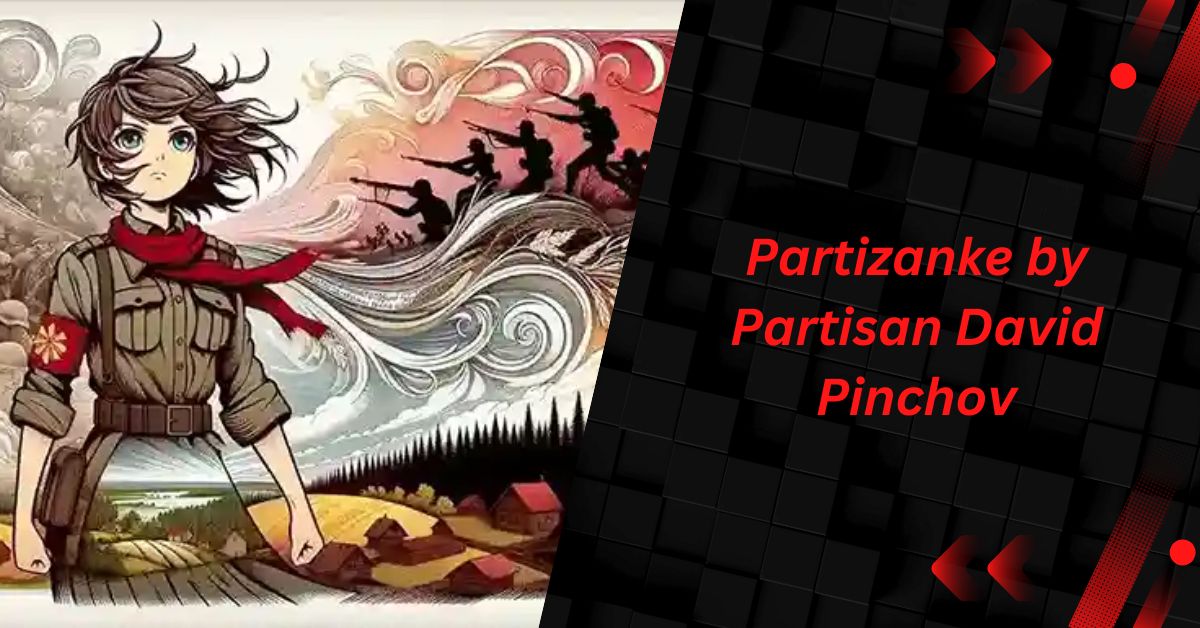Partizanke by Partisan David Pinchov – Women’s Contributions in World War II
“Partizanke by Partisan David Pinchov” is a powerful exploration of the untold stories of women in World War II resistance movements. The book delves into the lives of female partisans who played a crucial role in fighting against oppression, highlighting their bravery, determination, and resilience.
By the end of this article, you will have a comprehensive understanding of Partizanke by Partisan David Pinchov, its historical context, the key themes it addresses, and its broader implications for our understanding of World War II and women’s roles in history.
The Historical Context of World War II Resistance Movements
The Role of Women in World War II
World War II was not only a global conflict but also a pivotal moment in women’s history. Women were essential to the war effort, both on the front lines and in support roles. They filled positions traditionally held by men, who were away fighting, and many became active participants in resistance movements across Europe.
Partisan Movements: A Brief Overview
Partisan movements arose in response to occupation by Axis powers. These groups engaged in guerrilla warfare, sabotage, and intelligence gathering, often working in collaboration with Allied forces. The partisans’ struggle was not just against military forces but also against oppressive regimes that sought to suppress their freedoms.
Partizanke: An Overview
What is “Partizanke”?
“Partizanke” is a poignant exploration of the contributions of female partisans during World War II. The book is written by David Pinchov, who seeks to illuminate the often-overlooked narratives of women in resistance movements. By focusing on these brave women, Pinchov provides a fresh perspective on the war and its impact on society.
Key Themes Explored in “Partizanke”
- Bravery and Resilience: The stories of female partisans showcase incredible bravery in the face of danger. They risked their lives to fight against oppression, demonstrating immense resilience in their struggles.
- Community and Solidarity: The book highlights the importance of community and solidarity among women. The bonds formed in resistance movements were crucial for survival and success.
- The Fight for Equality: Female partisans not only fought against Nazi oppression but also challenged gender norms. Their involvement in the war helped pave the way for future generations in the fight for gender equality.
Analyzing the Impact of “Partizanke”
Contributions to Historical Understanding
“Partizanke by Partisan David Pinchov” significantly contributes to our understanding of World War II resistance movements. By emphasizing the role of women, the book challenges traditional narratives that often overlook female contributions. This perspective is vital for a comprehensive understanding of history.
Reviving Forgotten Narratives
Many female partisans’ stories remain untold or marginalized in history. Pinchov’s work revives these narratives, ensuring that the bravery and sacrifices of these women are not forgotten. By shedding light on their experiences, “Partizanke” inspires a new generation to appreciate the complexities of history.
Insights and Interpretations
The Importance of Individual Stories
While “Partizanke” discusses broader themes, it is the individual stories of women that resonate most. Each woman’s experience offers a unique insight into the challenges faced during the war. By highlighting these personal narratives, Pinchov emphasizes the humanity behind historical events.
Gender and War
“Partizanke” challenges the notion that war is a male-dominated sphere. It invites readers to reconsider the roles women played, not just as supporters but as active participants in shaping history. This shift in perspective is essential for understanding the full impact of war on society.
Related Themes and Historical Significance
The Intersection of Gender and Resistance
The book’s focus on women in resistance movements opens up discussions about the intersectionality of gender and political resistance. Female partisans faced not only the dangers of war but also societal expectations regarding their roles. Understanding this intersection enriches our comprehension of resistance movements and the fight for equality.
Legacy of the Female Partisan Experience
The legacy of female partisans extends beyond World War II. Their contributions have inspired feminist movements and discussions about women’s roles in conflict. “Partizanke” serves as a reminder of the importance of including women’s voices in historical narratives.
Frequently Asked Questions (FAQs)
What is the primary focus of “Partizanke by Partisan David Pinchov”?
The book focuses on the contributions of female partisans during World War II, highlighting their bravery and the often-overlooked role women played in resistance movements.
How does “Partizanke” contribute to our understanding of World War II?
“Partizanke” offers a fresh perspective on the war by emphasizing women’s experiences, challenging traditional narratives that often ignore female contributions.
What are some key themes in “Partizanke”?
Key themes include bravery and resilience, community and solidarity, and the fight for equality. The book illustrates how female partisans navigated their roles during a tumultuous time.
Why is it important to study the experiences of female partisans?
Studying the experiences of female partisans enriches our understanding of history and highlights the diverse contributions of women in shaping social and political movements.
How does “Partizanke” challenge traditional historical narratives?
The book challenges traditional narratives by focusing on individual stories of female partisans, showing that war is not solely a male-dominated sphere and emphasizing the need for inclusive historical perspectives.
Conclusion: The Lasting Impact of “Partizanke”
“Partizanke by Partisan David Pinchov” is more than just a historical account; it is a tribute to the brave women who fought against tyranny and oppression during World War II. By highlighting their stories, Pinchov ensures that these women’s contributions are recognized and remembered.
As we reflect on the lessons learned from “Partizanke,” it becomes evident that the narratives of women in history are vital for a complete understanding of the past.






